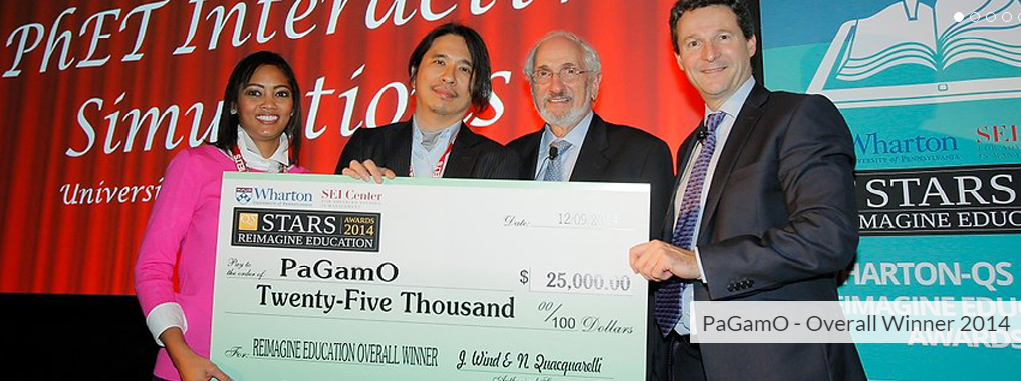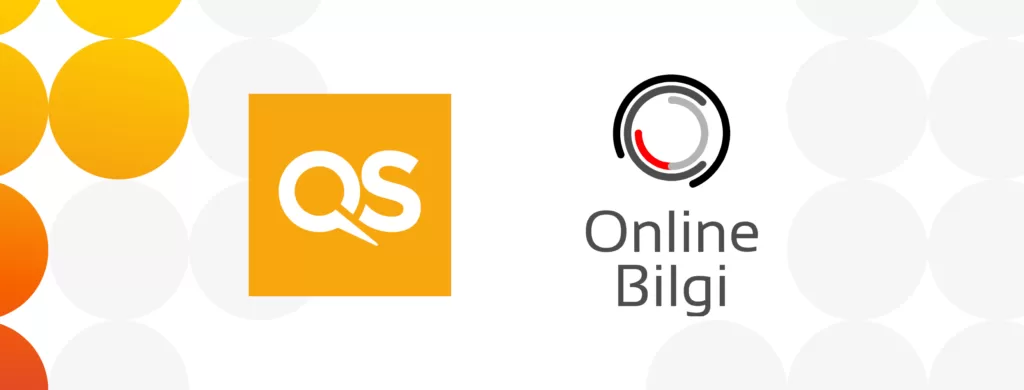
In light of the upcoming Re-imagine Education Awards, the innovative global competition launched last year by QS and the Wharton School of the University of Pennsylvania to find the world’s top higher education pedagogical innovation. I started reminiscing about my own university experience, and one particular course came to mind when I looked closely at Hybrid Learning. At QSIU, we are proud to have a team with a diverse skill set, a range of over 12 languages, and have come from various different universities from around the world. Below is an account of a few QSIU team members who share their own memorable experience of past pedagogical methods that have been particularly effective.
Hybrid learning
The most innovative blended pedagogy to enhance student learning
Deena Alhilli , Project Manager – Queen Mary University , MSc Technology, Exploitation and Management.

“To this very day, I remember my professor’s method so clearly as it was not only different to any other method, but at the time it felt the most challenging and yet the most engaging. The professor separated the curriculum into 3 parts and based each part on a case study; we covered Dell, eBay and Krispy Kreme.
He would begin each section with one or two traditional lectures on areas that we will be focusing on in the case studies. Following this a case study would be presented to us with a brief history, the remaining classes included group discussion about our findings, that we had to do in our time outside the classroom, and how this integrates with the course material. At the end of each case study we would need to present recommendations in a “role play” form as consultants presenting to the “Corporation” (Case Study), with strong critical feedback received. Each case study and presentation comprised of 20% of the course, with 30% contributing to the final exam.
The blend of lectures, our own research and “professional” presentations not only contributed to more effective learning, but prepared many of us for working life by learning key skills such as research, analysis, team work, peer reviews and presentation skills.”
Presence learning
The most innovative classroom-based pedagogy to enhance student learning
Leigh Kamolins, Operations Manager – Monash University, Master of European and International Studies

“I often reflect on my time at Monash. Over the course of my undergraduate and postgraduate studies there were many fascinating experiences and wonderfully engaging teaching staff.
In addition to highly engaging lectures, seminars, etc., the professor running my Masters programme developed a “Young Researchers” conference which allowed us to share our work with other students and academics who had similar interests. She encouraged us to present papers on pieces of research that we had worked on, or present essays we had written in a format no dissimilar to an academic conference.
Some people presented essays they were writing, other presented preliminary research they had been doing towards their thesis. By sharing our ideas and discussing our work with fellow students and the academics, it really helped to focus my research and areas of interest. I recall fondly the feedback and follow up discussions I had with a visiting Professor, who helped to facilitate the conference, which really helped me to establish much better methods in my research.
For those fellow students of mine who followed Academic careers after their study, the whole proved invaluable. Although I never went down the path of having an Academic career, I feel that this experience provided me with excellent skills that I have applied in my day-to-day work in almost every job I’ve had in my professional life. It helped me to focus the way I explain ideas to different people and how to deal with, and defend if necessary, critique of my ideas. It also showed me how important feedback is – no matter how good you think something is, it can always be improved on by getting the input of others.”
Teaching delivery
The best approach resulting in outstanding student satisfaction and/or enhanced learning outcome
Benjamin Clayton, Analyst – Cambridge University, Political Science and Government
“My university has always placed a huge emphasis on one-on-one (or, to be fair, two-on-one) contact between students and academics, and this was the environment in which all my non-seminar work was assessed. Sometimes I was talking over my essays with professors, other times PhD students, but there was one constant – I was able to pick through the brains of people who lived and breathed their subject and ask questions that could spin out into discussions all of their own.
The limitations of this model are immediately apparent, as it requires a huge commitment in both time and resources. I would say with full confidence that the knowledge and critical thinking skills I gained from these discussions was invaluable, but short of a vast increase in the funding available to academics at all levels – not to mention a swelling in the ranks of PhD students – this approach to higher education isn’t compatible with increasing university places and access to these institutions.”
Dasha Karzunina, International Research Liaison – University of Nottingham, Maths & Philosophy
“I went to the University of Nottingham to study Maths & Philosophy. It was a rare combination and there were only five of us on my course, in a university that had over 30,000 full-time students. This meant that my experience was certainly different when compared to an average university student in a red-brick university in England and I found it both challenging and inspiring.
It was challenging because doing maths for 50% of the time and then switching to a subject that doesn’t use numbers, calculations or provide straightforward answers the other 50% of the time is tough! I would just begin to understand a maths proof and then would suddenly have to switch and write an essay on Buddhism. This has not only made the maths harder but it’s made the philosophy harder too as I could only do half the modules. However, I was greatly helped in getting through this confusion by my wonderful tutor in first year, who remained my lecturer throughout the duration of my course.
My tutor was a very interesting man – he wrote a number of publications in highly influential philosophical journals and was mainly fascinated by analytical philosophy. He has inspired in me a real passion for analytical philosophy and influenced the modules I later selected in my degree. The reason I thought his teaching methods were excellent was because we received a lot of attention in the early stages of our degrees, which quickly taught us how to think and write critically and independently. And I believe being able to form your own opinion based on all the information available is a rare asset.
There were a number of factors that contributed to the excellent teaching and learning conditions:
- There were only five of us on the course, so our tutorials were small and personal by definition
- There weren’t many students taking our modules and so the turnaround time for coursework and questions was short and hence communication with the lecturers on the whole was efficient and helpful
- We got very extensive feedback on our essays and got several opportunities to edit them or go for a different angle so long as it was before the deadline
- Lectures and tutorials were interactive where questions were asked and answered and debates were had.
When I wrote my first philosophy essay, I had absolutely no idea what I was doing as I’d never studied philosophy before. However, I received a great amount of continuous constructive feedback from my tutor who seemed like he had a genuine interest in what I had to say and wanted me to do well. This allowed me to refine the essay several times until it was perfect. As a result, I did really well and got a first. Although I knew I’d received a lot of support on this essay, it’s given me the confidence that I’m capable of understanding the often ambiguous philosophical topics and writing good essays. Naturally, the level of support was reduced as I progressed through my degree and the level of independence increased. However, it’s only through thorough feedback in the initial stages and through discussion that I developed my own techniques and the desire to propose original ideas and challenge common views.
One thing that hasn’t diminished over the course of my degree is conversation. I always felt I was able to book an appointment with one of my lecturers and discuss a question in person. That kind of one-to-one time is exactly what makes one’s learning experience memorable, personable and effective, in my opinion. Nothing revolutionary here, simply a good system where one can learn through interaction and teachers have enough time to see their students.”
The Re-imagine Education event will take between Monday 7th December and Wednesday 9th December 2015 in Philadelphia, click here for further information on the conference, where you will be able to see the previous winners of each award, purchase tickets and see what past and present universities around the globe are doing in terms of pedagogy.
We’d love to hear your stories and ideas. Share your university experiences or suggestion for innovation below…





